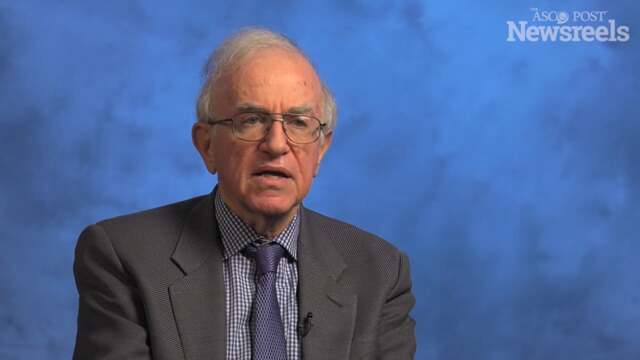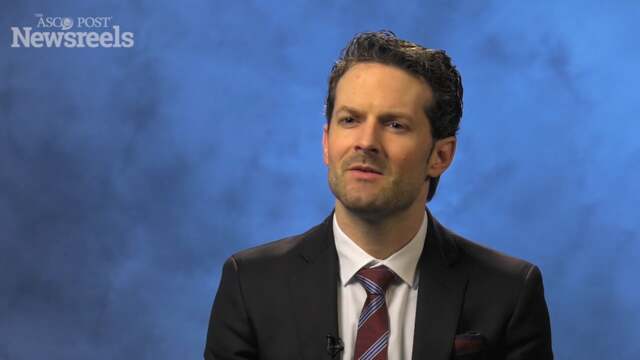Roland Seiler, MD, on Bladder Cancer: Subtypes and Treatment Response
2017 Genitourinary Cancers Symposium
Roland Seiler, MD, of the University of British Columbia, discusses a way to identify molecular subtypes of muscle-invasive bladder cancer, the varying responses to cisplatin-based neoadjuvant chemotherapy, and which patients show the most benefit. (Abstract 281)
Emma Hall, PhD, of the Institute of Cancer Research, London, discusses long-term outcomes with chemoradiotherapy vs radiotherapy alone, and standard vs reduced high-dose volume radiotherapy in muscle-invasive bladder cancer. (Abstract 280)
Lawrence H. Einhorn, MD, of the Indiana University Simon Cancer Center, summarizes his keynote lecture on the controversies in management of clinical stage I testicular cancer and the long-term consequences of platinum combination chemotherapy.
Guru Sonpavde, MD, of the UAB Comprehensive Cancer Center, discusses his study on circulating tumor DNA alterations in metastatic castration-resistant prostate cancer and the therapeutic direction the data suggest. (Abstract 149)
Charles G. Drake, MD, PhD, of Columbia University Medical Center, summarizes his keynote lecture on immunotherapy as a new frontier in prostate cancer and its synergistic use with traditional treatments.
The
Roland Seiler, MD, of the University of British Columbia, discusses in German a way to identify molecular subtypes of muscle-invasive bladder cancer, the varying responses to cisplatin-based neoadjuvant chemotherapy, and which patients show the most benefit. (Abstract 281)





